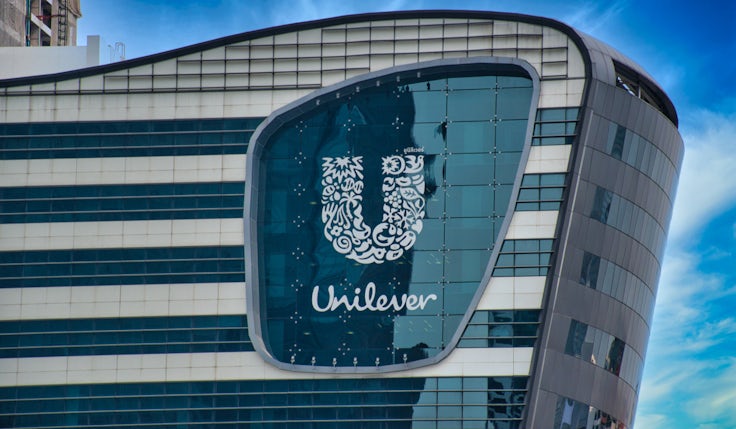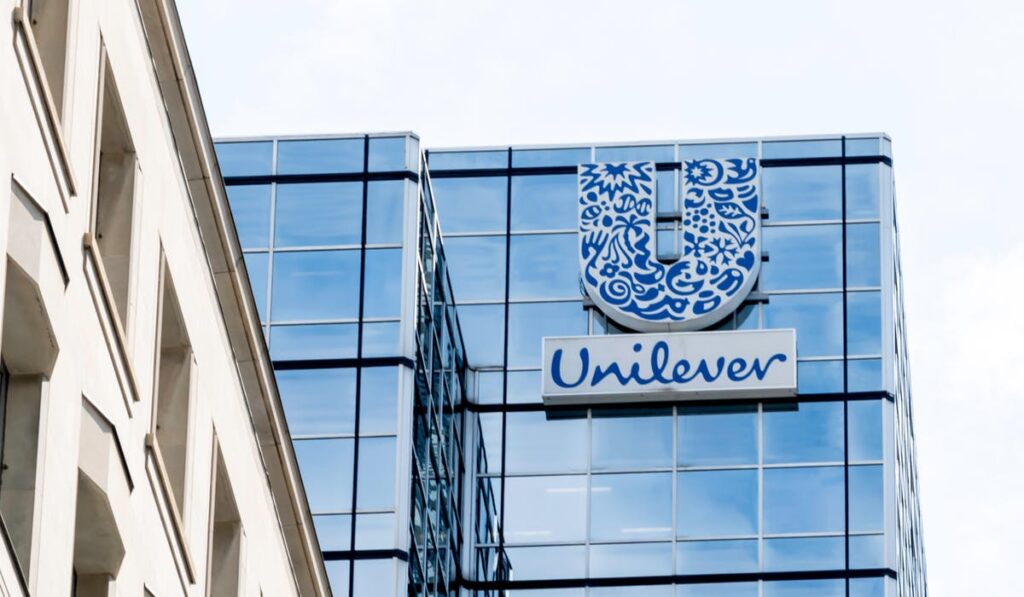
Unilever will no longer be sacrificing competitive levels of investment behind its brands in pursuit of slightly higher profits, insisted its CEO.
Speaking to investors today (31 July), CEO Fernando Fernandez, who took the helm of the FMCG giant in March, said it was absolutely imperative the business invested competitively behind its brands.
“The times of Unilever trading off lower, uncompetitive investment in our brands to deliver some more profit are gone,” he stated. “We will protect the investment behind our brands.”
 Unilever will no longer be sacrificing competitive levels of investment behind its brands in pursuit of slightly higher profits, insisted its CEO.
Unilever will no longer be sacrificing competitive levels of investment behind its brands in pursuit of slightly higher profits, insisted its CEO.
Speaking to investors today (31 July), CEO Fernando Fernandez, who took the helm of the FMCG giant in March, said it was absolutely imperative the business invested competitively behind its brands.
“The times of Unilever trading off lower, uncompetitive investment in our brands to deliver some more profit are gone,” he stated. “We will protect the investment behind our brands.”
His comments came as the business, which owns brands including Dove, Vaseline and Hellmann’s, announced underlying operating profit decreased by 4.8% during the first half. However, sales grew by 3.4%, with volume growth of 1.5% and pricing of 1.9%.
There is an implicit recognition that the levels at which we were investing three years ago were absolutely uncompetitive.
Fernando Fernandez, Unilever
In the same period, Unilever increased its brand and marketing investment to 15.5% of revenue, up 40 basis points versus last year.
This increased level of investment follows a period of intentionally and “significantly” stepping up brand and marketing spend, Fernandez said.
“There is an implicit recognition that the levels at which we were investing three years ago were absolutely uncompetitive,” he stated.
Unilever’s leadership is now “much more comfortable” with its level of brand and marketing investment. Prior to Fernandez taking on the CEO role Unilever has been on a transformation, with predecessor Hein Schumacher having kicked off a renewed focus on competitiveness when he became CEO in 2023.
One way that focus on competitiveness has been brought to life is through a focus on Unilever’s “power brands” – the brands in its portfolio most impactful at driving growth. The business reported that 100% of its incremental marketing investment in the first half went behind its power brands.
Fernandez was asked by an investor how Unilever determines the effectiveness of its increased marketing spend and whether it would judge if it has achieved the optimum level through measuring share of voice.
“Measuring share of voice now is very difficult, particularly in the context of explosion of digital media,” Fernandez said. “I believe that the most important metric for us is the strengthening of our UBS, our unmissable brand superiority scores.”
These scores are improving across 60% of Unilever’s revenue, he added.
Focus on beauty and personal care
As well as Unilever’s focus on its most impactful brands, the business is also increasingly orienting itself towards the beauty and personal care segments. Around 80% of its additional marketing spend was directed towards the beauty and personal care.
According to Fernandez, brands in this segment are “more demanding” in terms of the level of marketing investment they need.
The CEO explained Unilever is driving its portfolio mix “towards beauty and wellbeing and personal care”, highlighting the acquisition of refillable deodorant brand Wild and its agreement to acquire male soap brand Dr Squatch in the first half.
I talk a lot about the new models of reach and persuasion, and retail media plays a very important role.
Fernando Fernandez, Unilever
Meanwhile, Unilever confirmed the separation of its ice cream unit, which includes brands like Magnum and Ben & Jerry’s, is scheduled to go ahead later this year. The business also announced the sale of “non-strategic asset” The Vegetarian Butcher in March.
Unilever has planned further sales of brands coming down the line, with Fernandez stating the business is planning for “around €1.5bn [£1.3bn] to €2bn [£1.7bn] of disposals”.
These disposals will be focused on local European food brands, he said, as well as laundry brands in some markets where Unilever does not have a leading position
‘Desire at scale’ coming to life
Since taking over as CEO, Fernandez has focused on the idea that Unilever’s brands should be driving “desire at scale”, using what he terms “new models of reach and persuasion”.
What that means in practice is increased investment behind influencer marketing, with Fernandez asserting in January that 50% of the company’s brand and marketing budget would now be invested into the channel.
Speaking during today’s results, Fernandez touted the success of Vaseline in utilising what he terms a “modern approach to scale the brand”. The skincare brand has transformed itself from being “tired and dated looking” to a “true global power brand”, he said. The brand saw 10% underlying volume growth in the first half of 2025 and 10% underlying sales growth, generating sales of €1.1bn (£950m). This compares to a compounded annual growth rate (CAGR) of 4% between 2014 and 2021.
A focus on product superiority and premium aesthetics have been key pillars in Vaseline’s accelerated growth, but so too has what Fernandez terms “others say” at scale. This means utilising influencer and social marketing.
The CEO highlighted the Vaseline Verified social-first hacks campaign, as well as the brand’s recent tie-up with the White Lotus TV series as examples of how the brand is “leading the way when it comes to new models of reach and persuasion”. He referred to Vaseline as being “highly instructive” of how brands can drive “desire at scale”, something he wants to replicate across the business.
As well as investing in influencer marketing, Unilever is also looking to harness the potential of retail media to drive success.
“I talk a lot about the new models of reach and persuasion, and retail media plays a very important role,” he said. “Amazon today is not only an important channel of sale for us, but it’s also an important channel of discovery for our brands.”


